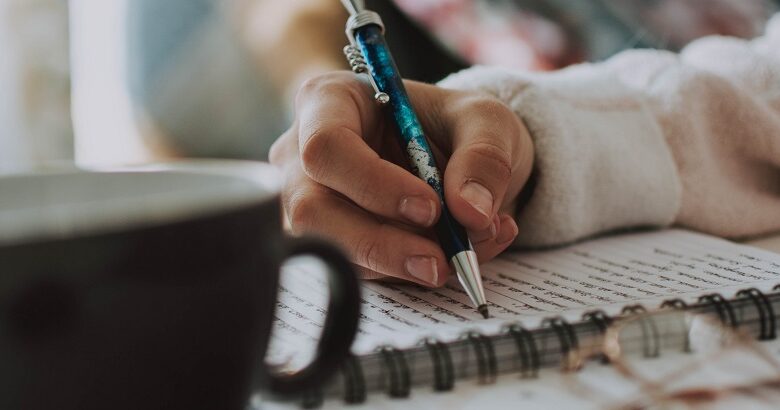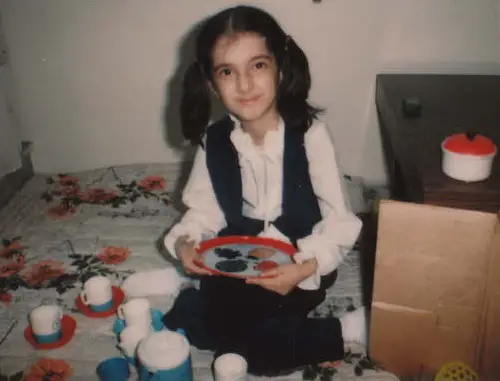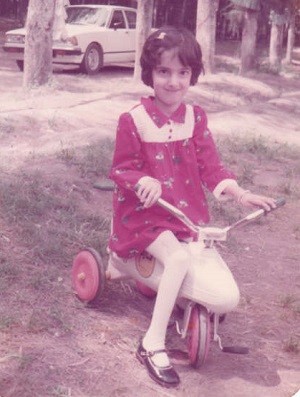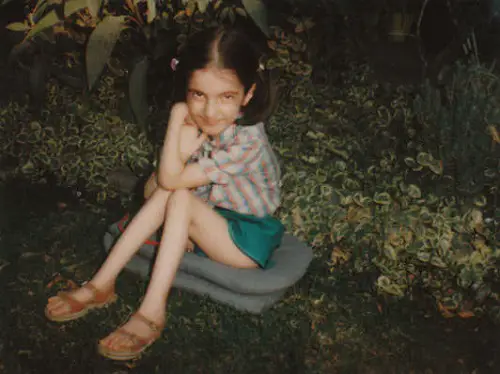
Disability and me: an open letter to my younger self
Writer, blogger and editor Raya AlJadir, who was recently awarded the Rosalynn Carter Fellowships for mental health journalism, reveals what she wishes she could have told her younger self about the experiences and journey of being a disabled person.
Almost everyone reaches a point in their life where they look back, reflect and think about how they could have done things differently. I believe that if you are a disabled person, your experience will be slightly different and probably packed with unique decisions and events that many others will not have lived through.
The older I get the more I realise I wish I’d had a disabled mentor or a role model living with a disability. Someone that could have advised me or shown me that I should have been proud of who I am and not try to escape my identity or block my disability.
Nowadays there are so many vocal and visible disabled people who give confidence and motivation to the next generation of disabled individuals.
In this open letter to my younger self, I am not only reflecting on my past but, hopefully, helping others to gain something from my own lived experience.
Hi my younger self,
I am writing to tell you a few things, but let me start by saying I am proud of you.
Despite all your mistakes and errors of judgement, you did well, especially considering you had no role model or anyone who was in a similar situation to guide you.
So where do I start, I guess from when you were 4 years old. To others you appeared confident and stubborn – you did well there. But why didn’t you tell people that you could not walk? I understand that you were the only disabled child in your birthplace, Mosul, Iraq, but why did you do that?
I know it wasn’t because of a feeling of shame, so I guess you thought it would make you appear weak, which would embarrass you. But that certainly isn’t true – if anything it should have made you feel stronger because your ‘difference’ forced you to put more effort than others into everything.


I am really impressed at how you insisted on going to mainstream school. You worked so hard during homeschooling to prove to your parents that academically you are more than capable and emotionally you could cope with being in a mixed mainstream school. Well done. Although you did take advantage of your disability and got away with few things, but I will let it go for now.
I think one of the things that I have always admired in you is how you always managed to make the best of what you have. You rarely relied on others to entertain you but instead found your own hobbies and enjoyment, be it with siblings, cousins, friends or solitude.
You loved playing role plays with your dolls and tea sets, keeping yourself occupied for hours. And let’s not forget how you created your own art exhibition in your back garden. Plus your love of reading, writing, sewing, riding your tricycle, etc. There were so many activities and hobbies you did it would take me forever to list them all.
You were always busy and active, and although you were clueless to it at the time, by doing all these things you showed people that your disability did not limit you or make you idle.
Now, I understand that moving to a new country, learning a new language and adapting to a different life (including attending your first special needs school) was tough. But that was no excuse for bribing your schoolmates with toys to play with you and be your friend.
You always liked your own company, so why did you change? Why did you feel stronger when you were surrounded by non-disabled schoolmates where, in fact, you should have felt more comfortable.


Yes, I know, physical difference was not the issue, but rather the language barrier and different ethnicity. But hey, at least you realised from a young age that disabled children are no angels and can be as mean any other. Maybe that is a form of negative equality?
Another thing I like about you is how you never wanted to find out about the progression of your disability or set a plan for the future. I will never forget when the doctor asked you if you want to know what will happen to you – you simply refused and told him that you will find out for yourself.
It is the attitude of taking each day as it comes that has been one of your positive qualities.
OK, so teenage years are hard for everyone, I understand that, but there was no need for you to try so hard to fit in. There was no need for you to act like the others or pretend to be someone you were not.
Having said that, it was brave of you to insist on going to a semi-mainstream school, and I do like how hard you worked to prove people that you could do well, if not better than all the others.
I know it was hard having to listen to teachers putting you down, or crushing any path you wanted to follow, but you did well to defy them and prove them wrong. I just wish you had accepted yourself more, and I don’t just mean your disability, but every aspect of your identity that you did your best to escape.


I am pleased at how well you coped with negativity, whether it was teachers or doctors who presented you with obstacles. You always kept trying, even though you had to do it alone.
I wish the older me, or any other disabled women, had been around back then to tell you not to listen to your teachers. You could have become an actress and you should have studied drama. I wish I could have told you not to take any notice of doctors – how can anyone predict the future?
I would have also encouraged you to make the most of your university days. I don’t understand how you went from being someone who was eager to a university student who did not participate in anything apart from lectures and seminars.
Were you scared of getting hurt like in secondary school? Or were so keen to focus, get your degree and prove to people you were worthy of that university place? I can’t judge you too much because you did get a first in your degree and went on to do better things. I just feel that you always did things late and never fully enjoyed your current situation.
You have always been stubborn, and sometimes not in a good way. But I know you did your best without having the support that is available now. So despite all your flaws, you did well.
Love Raya AlJadir
You can read more of Raya’s articles on her blog, Careless, and follow her on Facebook and Twitter @Carelessrayoon.
More on Disability Horizons…